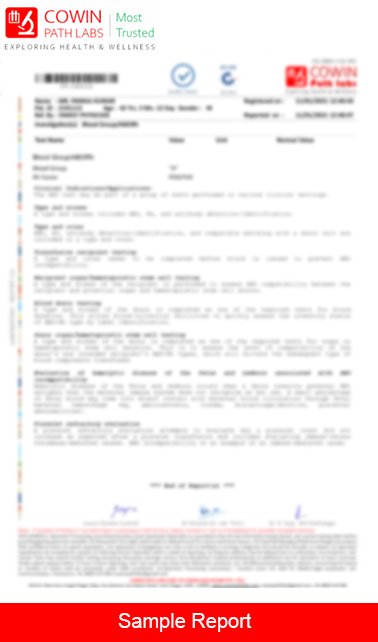- Patient/Guest
- Phlebotomist
- Updates
| Stool Routine Exam | - |
|---|
|
Examine stool for infection |
||
| Synonym | See updates | |
| Test Code | CDCPR0006 | |
| Test Type | Clinical Pathology | |
| Pre-Test Condition | See updates | |
| Report Availability | 2 D(s) | |
| # Test(s) | Multiple | |
| Test details | Sample Report |
|---|---|
| Stool Routine Exam |

|
| Synonym | See updates | ||
| Test Code | CDCPR0006 | ||
| Test Category | Gastrointestinal infection | ||
| Pre-Test Condition | See updates | ||
| |
Medical History | See updates | |
| Report Availability | 2 D(s) | ||
| Specimen/Sample | Stool; 5 g; St Cont | ||
| Stability @21-26 deg. C | 6 Hr(s) | ||
| Stability @ 2-8 deg. C | 24 Hr(s) | ||
| Stability @ Frozen | NA | ||
| # Test(s) | Multiple | ||
| Processing Method | Microscopy | ||
| **Stool Examination Routine****FDA Status**: Standard laboratory procedure under CLIA; no specific FDA approval required.**Other Names**: Stool Routine Analysis, Fecal Microscopy.**Historical Breakthrough**: Developed in the early 1900s to diagnose gastrointestinal infections, advancing microbiology.**Key Purpose and Impact**: Examines stool for parasites, pathogens, and blood to diagnose infections or digestive disorders.**Preparation and Patient History**: Stool; report diarrhea, abdominal pain, or travel history.**Consent Requirement**: Standard consent for diagnostic testing.**Clinical Value**: Sensitivity ~90%; specificity ~85%; detects abnormalities in ~50% of cases; guides diagnosis.**References Cited**: Testing.com Gastrointestinal Tests 2023; Labcorp Stool Analysis 2025; UpToDate Gastrointestinal Infections 2025 |
